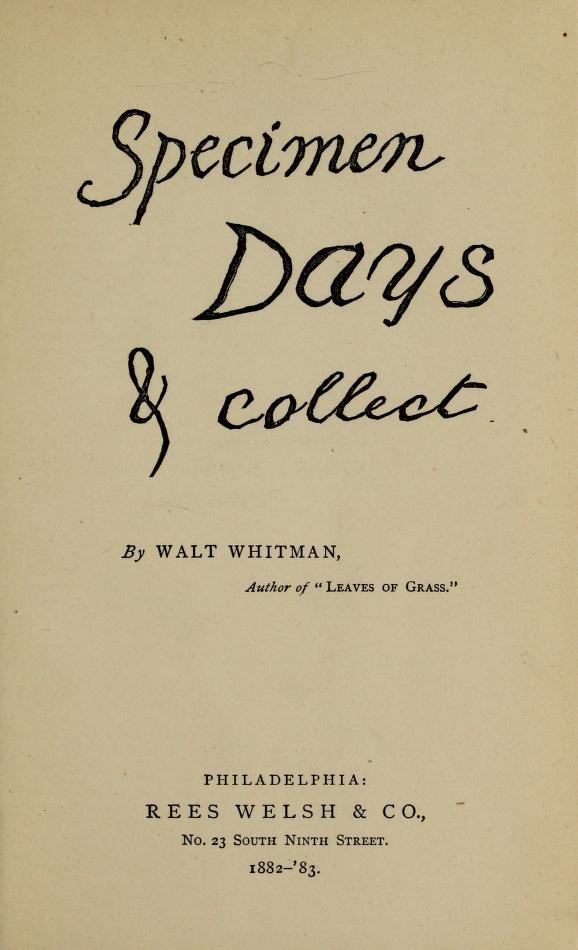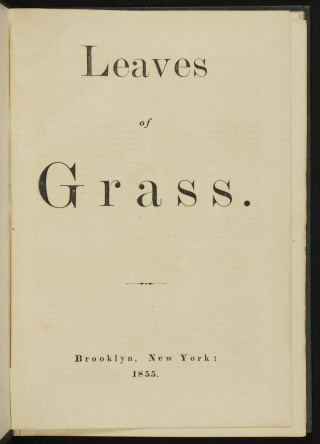Specimen Days repurposes Whitman’s Civil War diary, previously published as Memoranda during the War (1875-76), which had itself absorbed several articles published in the New York Weekly Graphic. The book also features his extensive postwar ‘nature-notes’: al fresco diary entries written in Camden, New Jersey and at nearby Timber Creek, where Whitman had retired in 1873 after a stroke. The final section is punctuated with entries from his 1879 trip west (to St Louis, Denver, the prairies and the Rockies), a visit to Boston (where in the summer of 1881 he oversaw what he thought would be the final edition of Leaves of Grass), portraits of luminaries such as Carlyle, Emerson, Poe and Longfellow and ‘final confessions’ which are not – non-spoiler alert – particularly confessional. A champion self-advertiser, maven of the brag and the humblebrag, he announces in the first pages: ‘Maybe, if I don’t do anything else, I shall send out the most wayward, spontaneous, fragmentary book ever printed.’
Born to a working-class family, Whitman fashioned himself as a kind of American democratic Oversoul: the persona he presented was both representative of and co-extensive with the often violently expanding republic. In ‘Song of Myself’, he zooms from New York to the Texas of the Alamo, saluting ‘Iowa, Oregon, California’ en route. His was a poetics of manifest destiny. The difference between the often overweening spirit animating ‘Song of Myself’ and the notational observations and memoranda of Specimen Days is striking. ‘Song of Myself’ is governed by an endlessly relaunched I/you dynamic (‘what I assume you shall assume’; ‘Loafe with me on the grass, loose the stop from your throat’; ‘I stop somewhere waiting for you’) – the poet variously buttonholing us, boasting, sidling, questioning, caressing. While there are some ‘dear reader’ apostrophes in Specimen Days (as well as addresses to the moon, a tree and several birds), it has a different vibe from the operatically wrought ‘Song of Myself’.
Even putting aside his egotistical sublime, Whitman can be aversive: the endless talk about physiognomy, manliness, ‘amativeness’ (heterosexual love) and ‘adhesiveness’ (‘manly attachment’), the whole phrenological word-hoard. For all his democratic bonhomie, his vitality sometimes seems a forced affair, a 19th-century relic like steamboats or the telegraph or mesmerism. He can seem a 19th-century Zelig: hugged as a child by the Marquis de Lafayette (French hero of the American Revolution); chatting with General (later President) Zachary Taylor during the Mexican-American War (or so he claimed); exchanging bows (‘and very cordial ones’) with Lincoln as they regularly passed each other in and around Washington during the Civil War.

